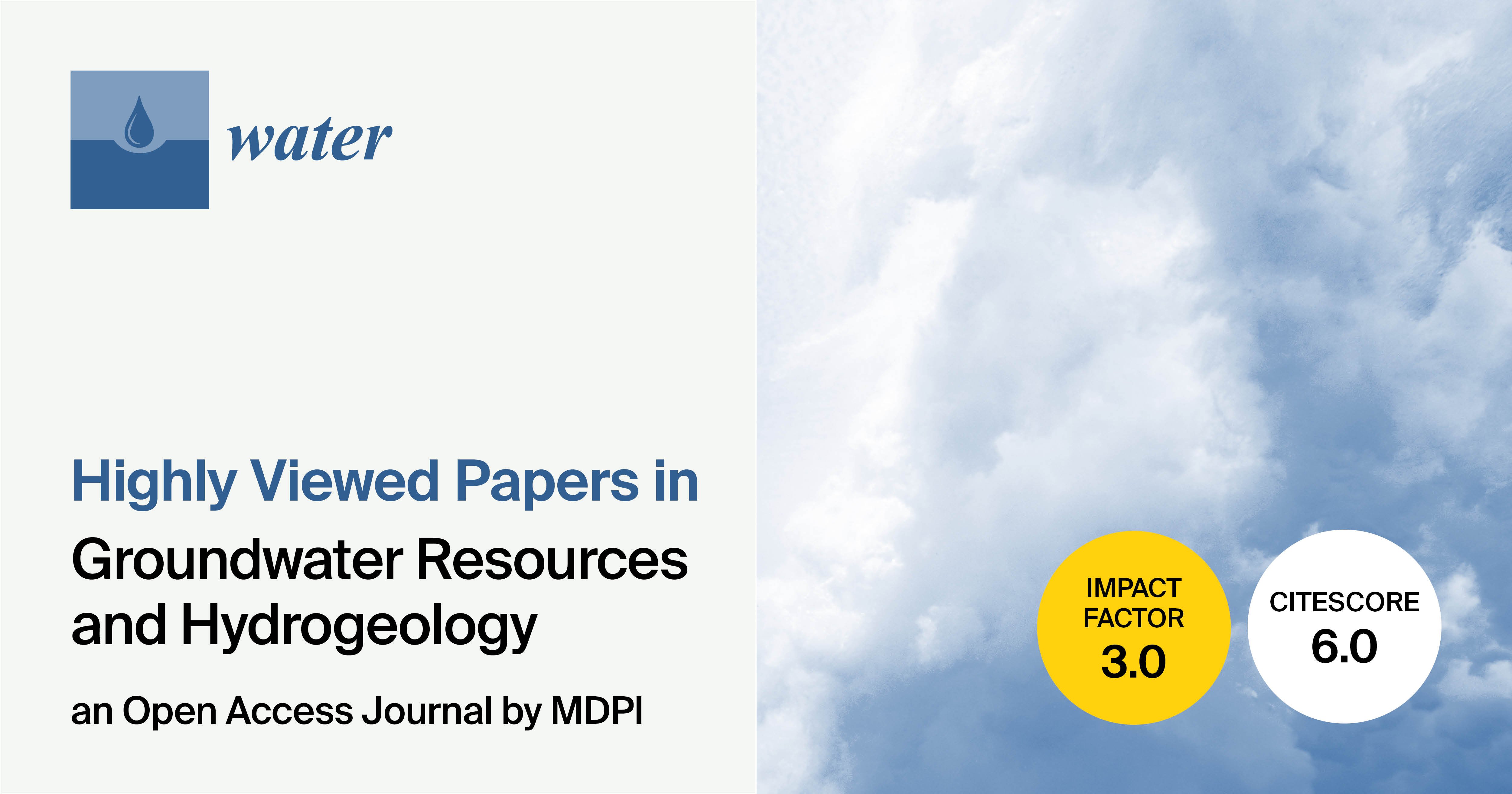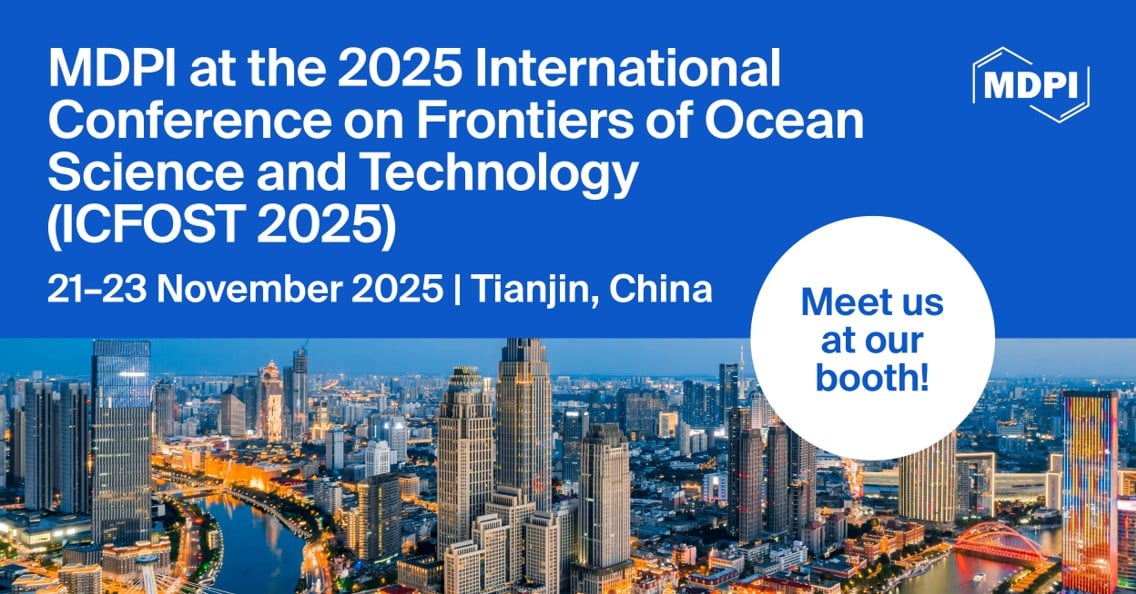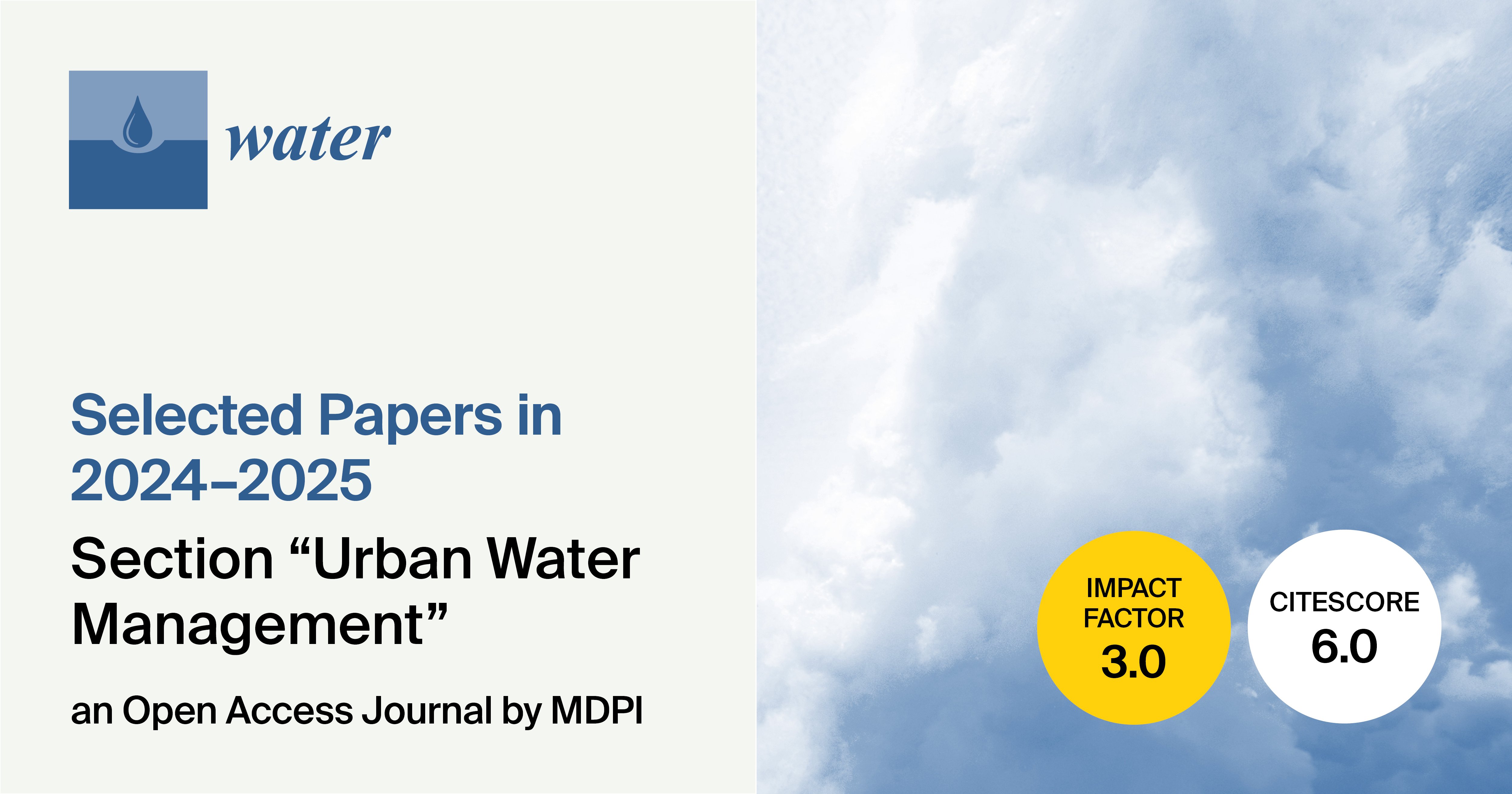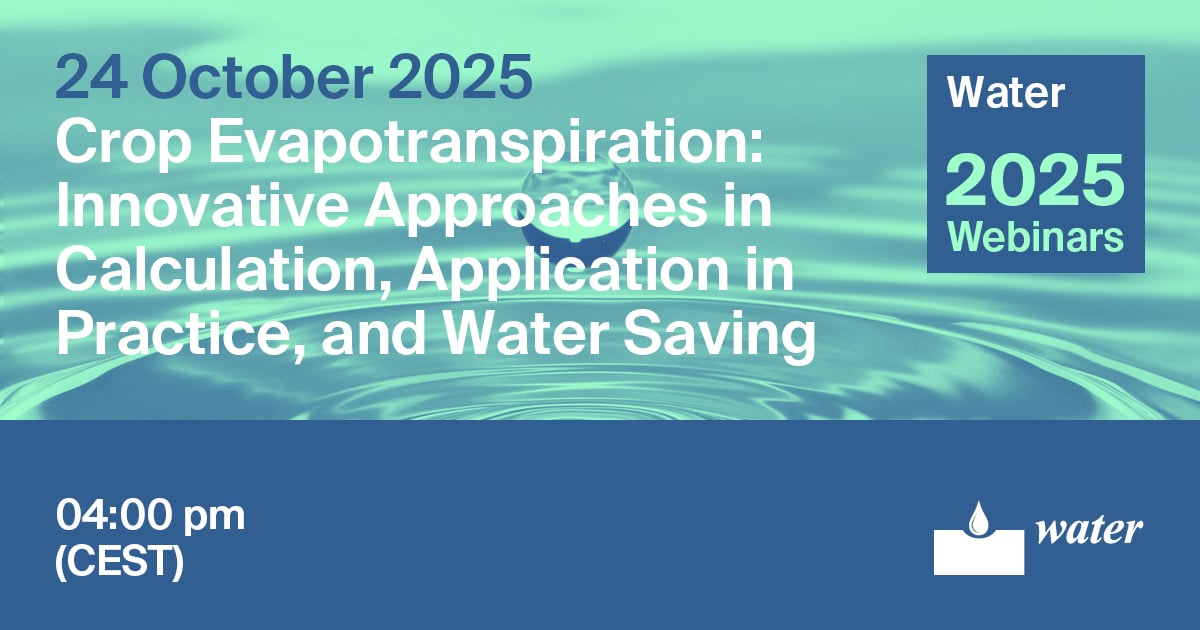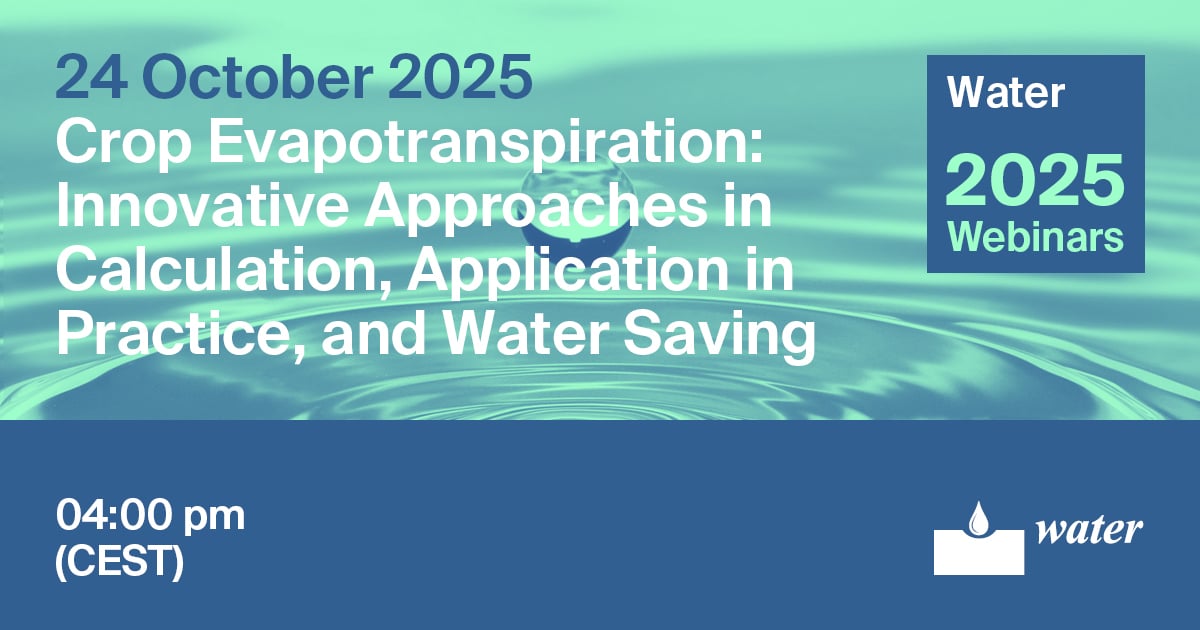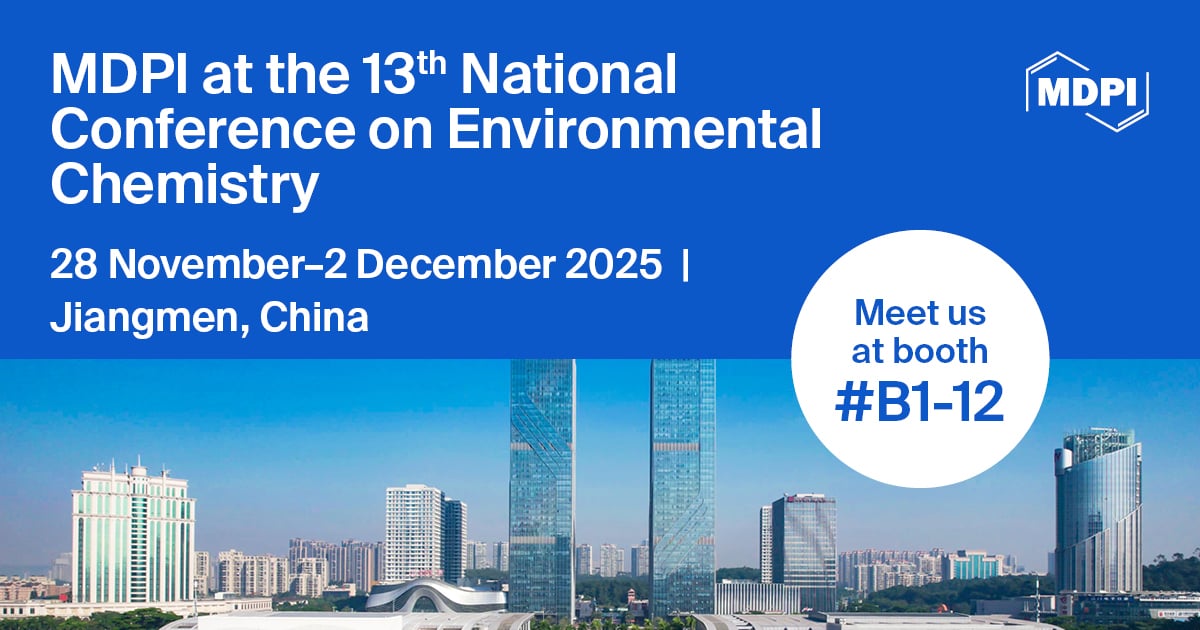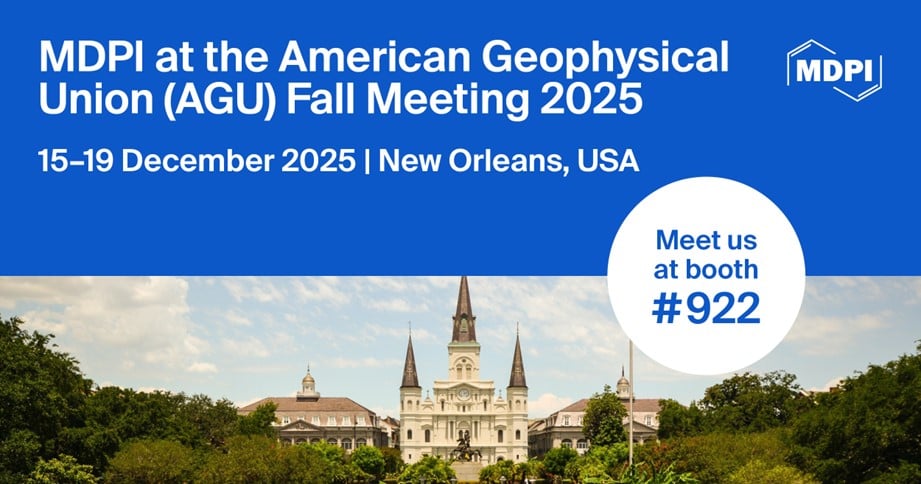- 3.0Impact Factor
- 6.0CiteScore
- 20 daysTime to First Decision
News & Conferences
Latest News & Announcements
Latest Conferences
Propose a Conference Collaboration
Promote and publicise your upcoming conference with MDPI.
All News & Conferences
News & Announcements
International Mountain Day—“Glaciers Matter for Water, Food and Livelihoods in Mountains and Beyond”, 11 December 2025
11 December 2025
News & Announcements
Article Layout and Template Revised for Future Volumes
11 December 2025
News & Announcements
Water | Highly Viewed Papers Related to Groundwater Resources and Hydrogeology
21 November 2025
News & Announcements
Meet Us at the 2025 International Conference on Frontiers of Ocean Science and Technology, 21–23 November 2025, Tianjin, China
20 November 2025
News & Announcements
MDPI Launches the Michele Parrinello Award for Pioneering Contributions in Computational Physical Science
6 November 2025
News & Announcements
MDPI INSIGHTS: The CEO's Letter #28 - WSF11, Nobel Laureates, Proofig AI, Romania Summit, STM and FBF
4 November 2025
News & Announcements
Water | Invitation to Read Selected Review Papers in 2024–2025 in the “Urban Water Management” Section
3 November 2025
24 - 24 October 2025
News & Announcements
Water Webinar | Crop Evapotranspiration: Innovative Approaches in Calculation, Application in Practice, and Water Saving, 24 October 2025
23 October 2025
News & Announcements
Meet Us at the 13th National Conference on Environmental Chemistry, 28 November—2 December 2025, Jiangmen, China
21 October 2025
News & Announcements
Meet Us at the American Geophysical Union (AGU) Fall Meeting 2025, 15–19 December 2025, New Orleans, Louisiana, USA
16 October 2025
News & Announcements
MDPI’s Newly Launched Journals in September 2025
15 October 2025
of 26




